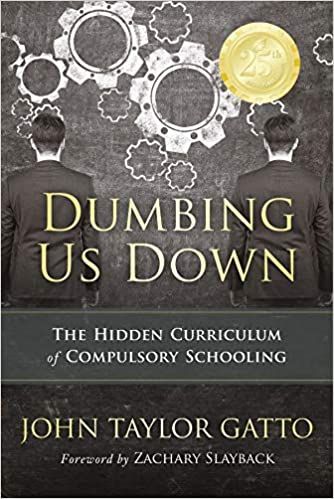Understanding Waldorf Education: Teaching from the Inside Out
This book by Jack Petrash, who has over 25 years of teaching experience, provides an in-depth yet easy-t0-comprehend guide to Waldorf education. The concept for Waldorf education was created by Rudolf Steiner, and Waldorf schools have been around since 1919. But mainstream education appears to be moving away from the three-dimensional approach that Waldorf encourages (artistic, physical and academic) and putting more focus instead on things like standardized testing and other external symbols of achievement.
Waldorf education encourages the development of the whole child, not just for their career or next level of education, but so they can give their own life direction and be economically and socially responsible. Some other important concepts taught through the Waldorf method include learning to separate emotion from action, learning to combine feelings with thinking (which results in idealism), self-discipline, and not specializing too early. Waldorf education also advises against introducing children to technology too early, without first allowing them to become accustomed to the world without it. Waldorf education encourages children to “try some of everything” in the early years of their education and become well-rounded. Learning through imitation and leading by example is highly encouraged with Waldorf education, instead of simply instructing children what to do and hoping they follow suit.
One of the main principles of Waldorf education is to follow the rhythm of the learning of the child, and to try to align education based on where the child’s interests lie at any given stage of their life. Also, in Waldorf schools a particular class has the same teacher as their main instructor from first through eighth grade. This process is called “looping.” Also, with Waldorf education, grade school students make their own readers in bound books starting in first grade, and create their own textbooks and workbooks as well throughout grade school and high school. These concepts and more are covered in Understanding Waldorf Education: Teaching from the Inside Out.
About the Author
Reviews
Eric Utne, founder of the Utne Reader:
“Jack Petrash’s eloquent, wise, and deeply moving book gives me a new found appreciation for Waldorf education. Even though I have been a Waldorf parent for nearly twenty-five years and a Waldorf teacher for nearly two years, I found Petrash’s explanation of the curriculum’s three-fold approach fresh and illuminating. Whether you are a parent, an educator, a policy maker, or simply a person interested in human growth and learning, read this book. You will learn how relevant education through the “head, heart, and hands” can be for our children and for the future we hope to create.”
About the Author
Jack Petrash is an educator with over 40 years of experience in the classroom. He has written a considerable amount of insightful information on education and parenting. His other books include Covering Home: Lessons on the Art of Fathering from Baseball and Navigating the Terrain of Childhood: A Guidebook for Meaningful Parenting and Heartfelt Discipline. Petrash is also the founder and director of the Nova Institute, which encourages the convergence of Steiner-Waldorf education and mainstream education. He currently resides in Kensington, Maryland.



